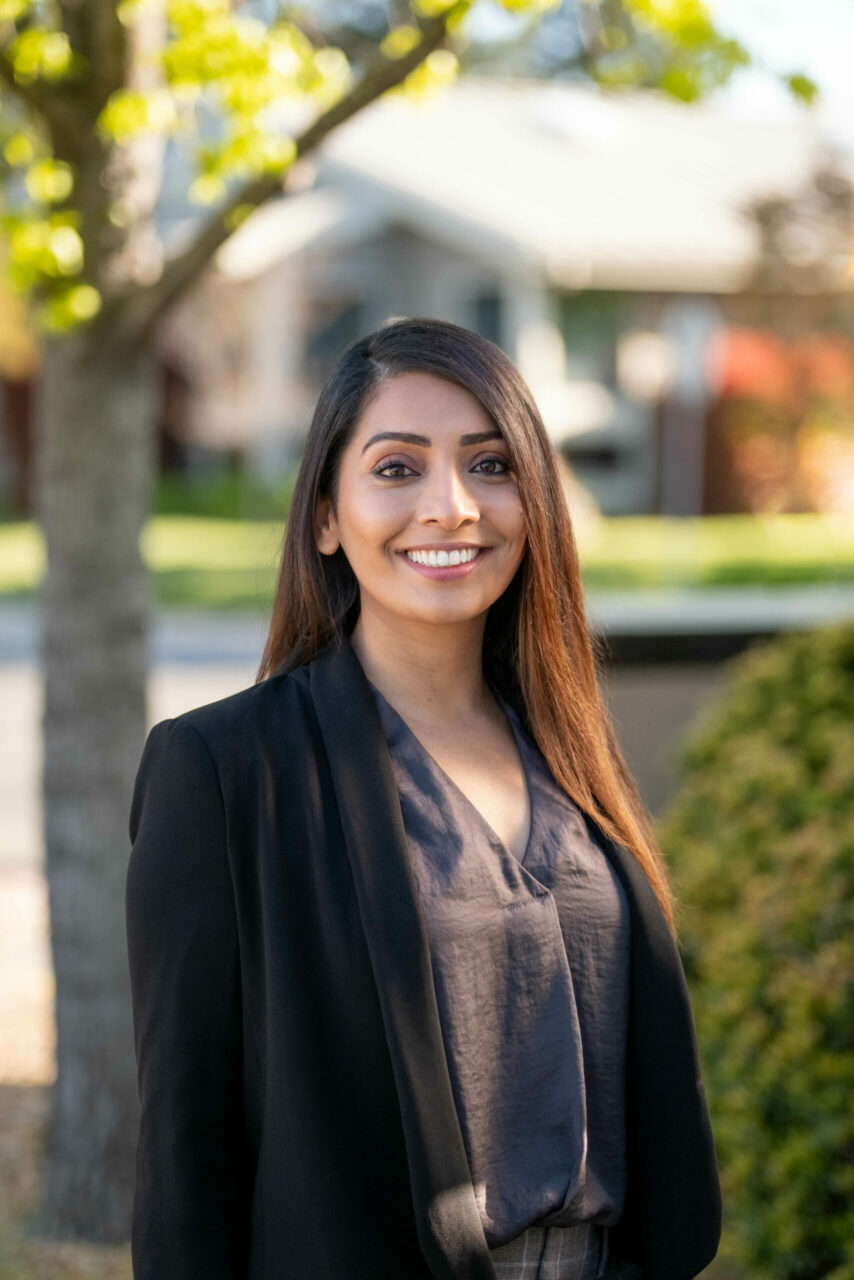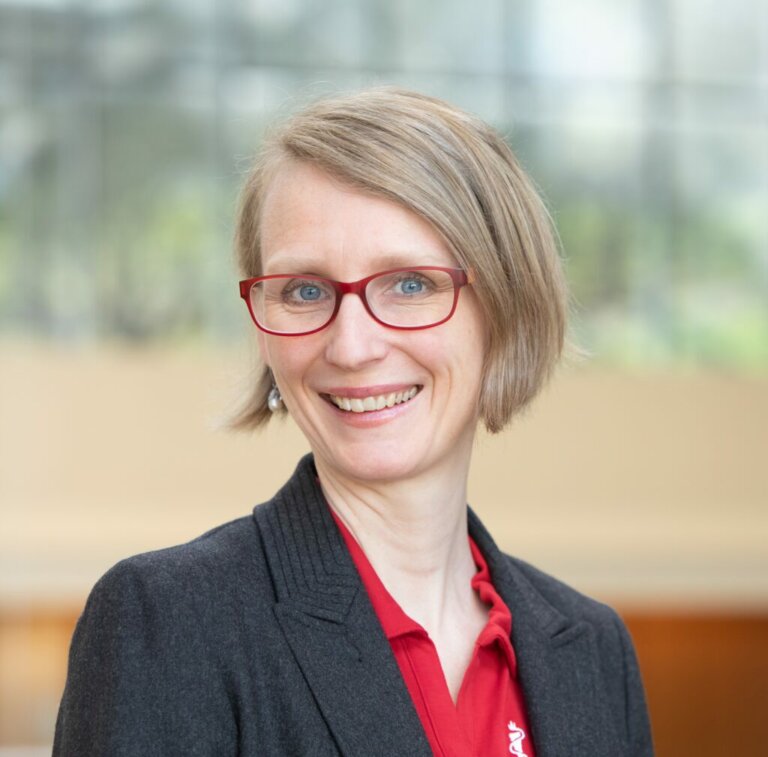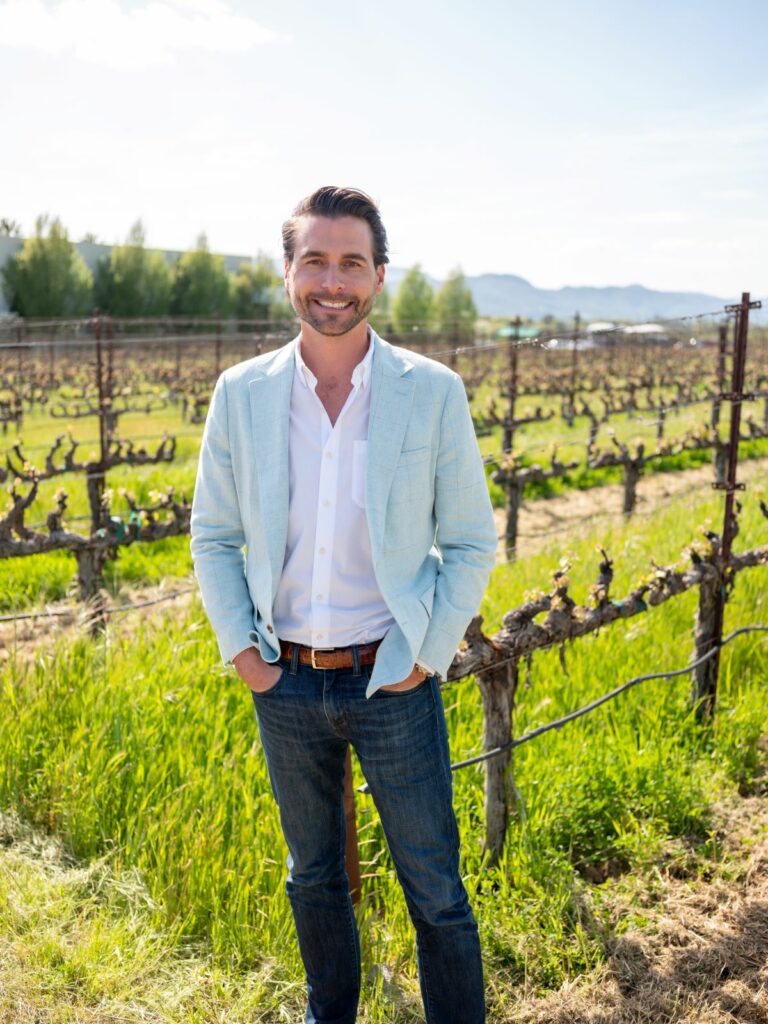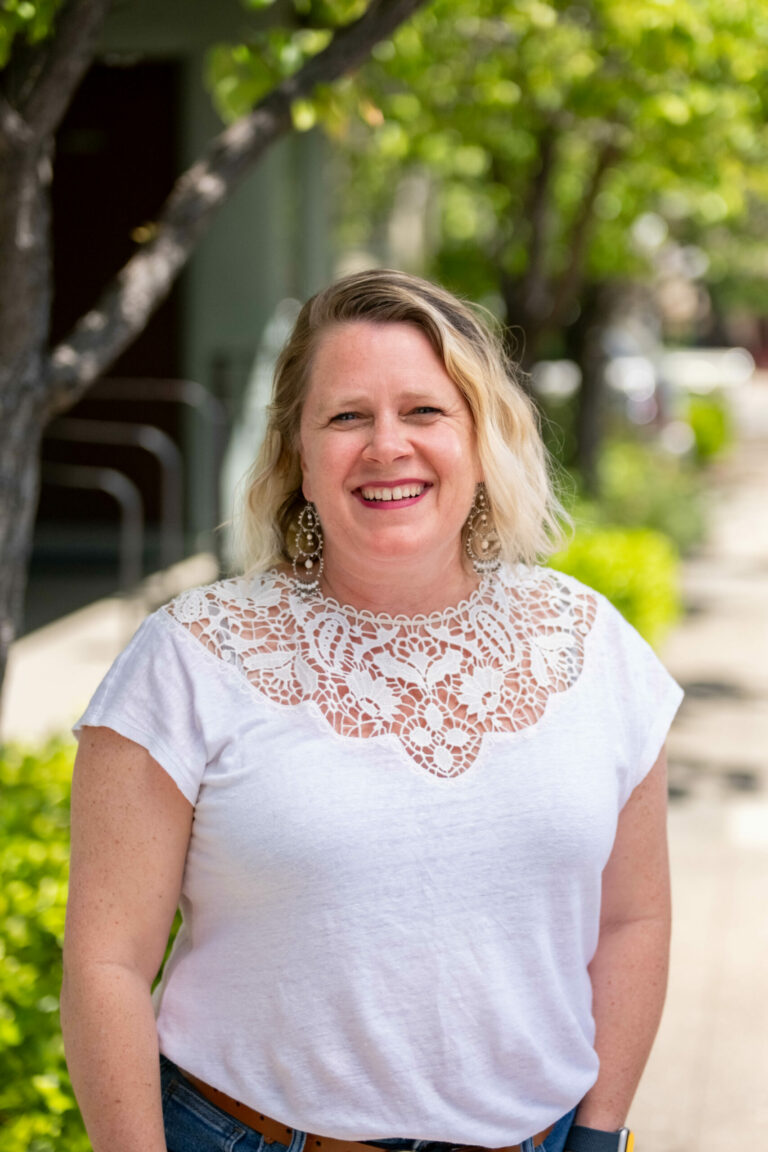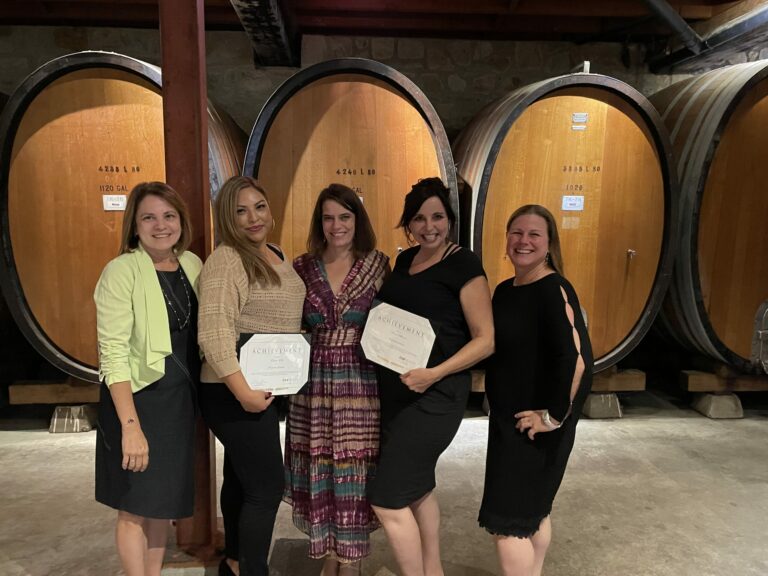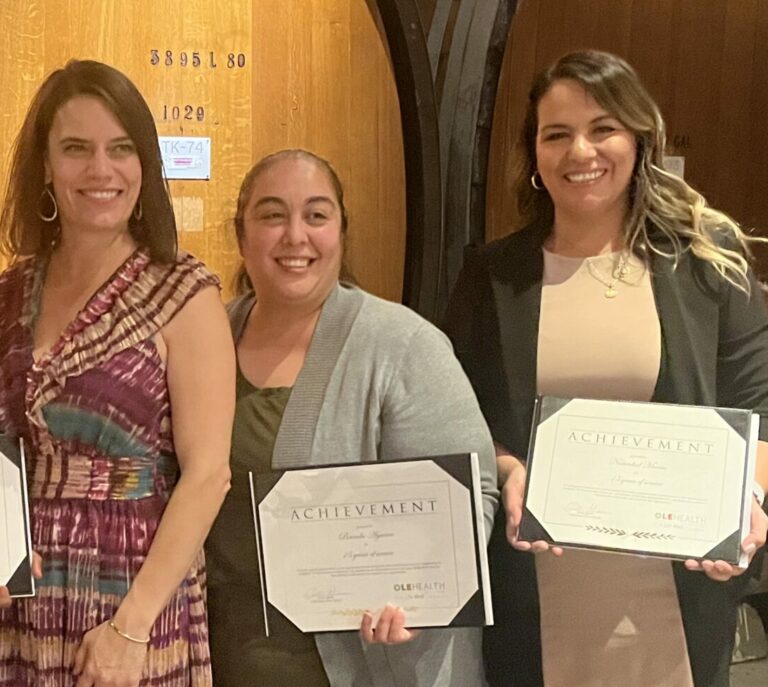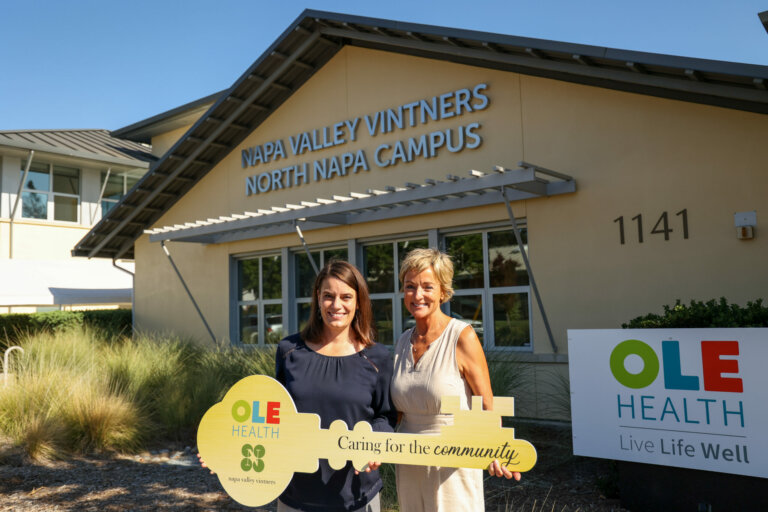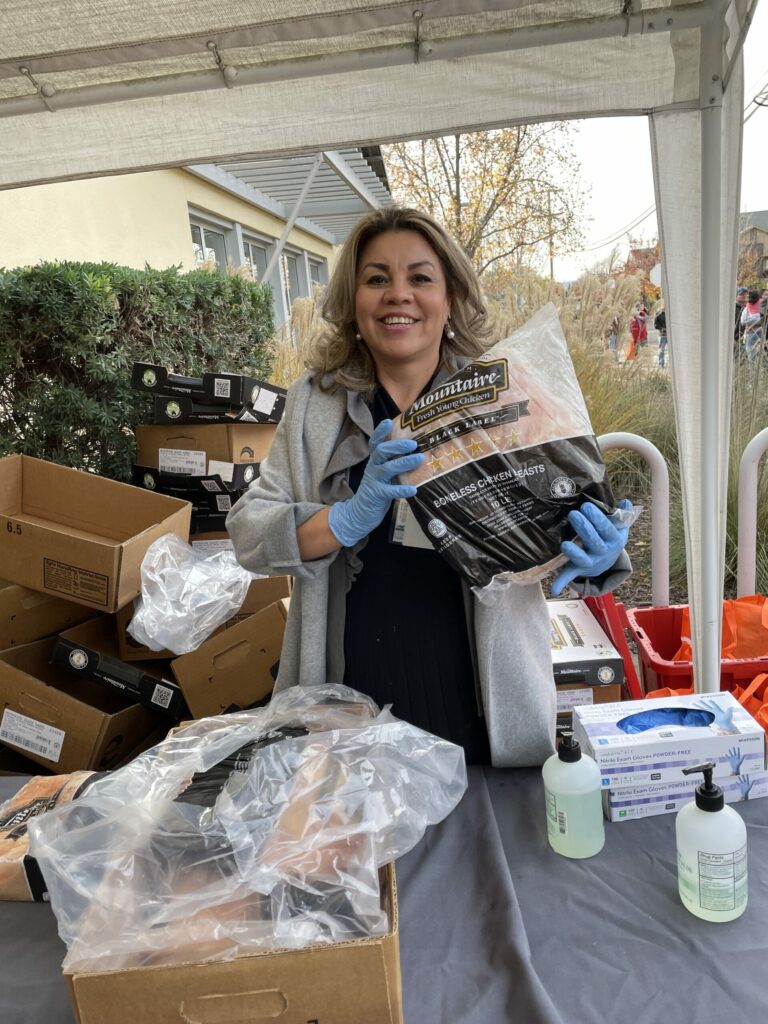Aisha Amin came to OLE Health in 2022. During her short tenure, she’s had a big impact on our dental department – more on that in the profile. But, she didn’t always want to be a dentist. She originally intended to become a physician and was bound for medical – not dental school – while studying Biochemistry and Molecular Biology at UC Davis. Fate intervened when a friend who was in dental school at the time suggested she think about dentistry. Aisha arranged to shadow a private dental office. When Aisha saw the combination of science, artistry, and personal connection with patients, within a week she knew the field of dentistry was her calling. We spoke with her about her background, what made her choose the FQHC (Federally Qualified Health Care) setting, and the changes she has implemented to improve access for our patients since she arrived.
What brought you to OLE Health?
I was born in Pakistan. When I was 7 years old, my family immigrated to Toronto, Canada. We spoke Urdu, Punjabi, and Hindi – but not English or French. I, and my three younger siblings, learned in school, but I often served as translator for my mother and father. When I was 17, we moved from Canada to the United States, where we again had to adjust to a new culture – this time to a place where not everyone has free health care. I learned about community clinics in dental school, and I opted to complete a Master’s Degree in Public Health and dedicate my career to underserved communities – especially those who might not speak the language or who are struggling to assimilate in a new country.
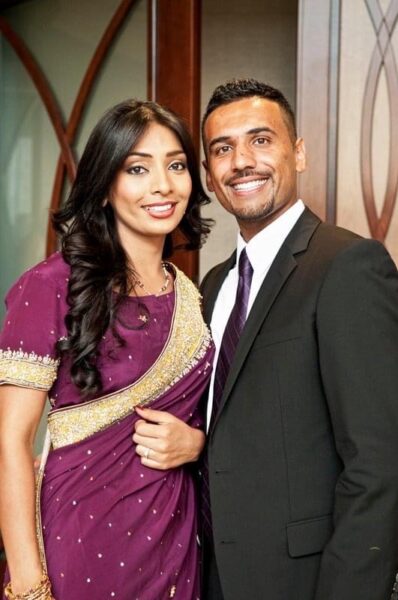
My husband and I had been living in Visalia when we moved back to Fairfield to be closer to family. Having served as past president for Tulare-Kings Dental Society and a big supporter of Organized Dentistry, I got recruited as a board member for Napa-Solano Dental Society upon my return to the Bay Area. Here I reconnected with an old college friend, Vincent Filanova (OLE Health’s former Chief Dental Officer). Fate intervened again when he called a few months later to let me know that my six years of experience as a Dental Director would be a good fit for OLE, I decided to interview for the dental director position. I was impressed with the dedication of everyone I met during the interview process, which included everyone from the front desk to the executives. I appreciated how everyone on the team had a voice. It was also a FQHC, and the mission aligned with my values!
What are the most common oral health issues you see among our patients?
I would say the biggest problem is not getting regular dental care. Many people think that if it doesn’t hurt, they are fine. We tell them, “When it starts to hurt it is too late.” This happens frequently with patients experiencing homelessness who often have abscesses and infections. We want to be able to prevent that by seeing them on a regular basis.
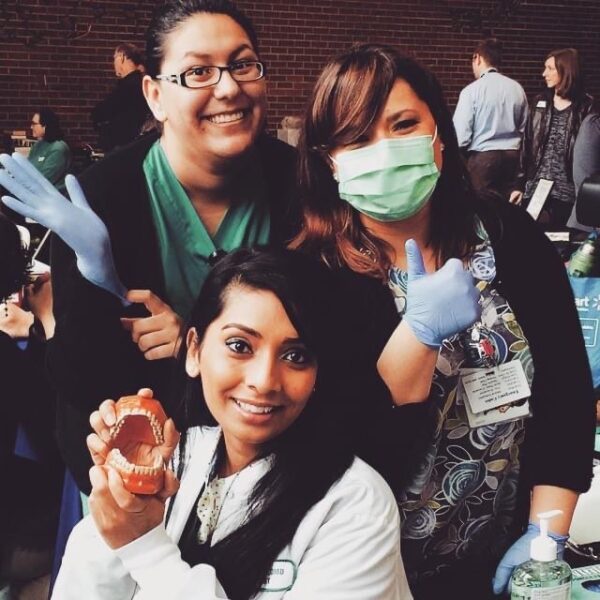
We are 1 of 2 pediatric dental practices in Napa, and pediatric patients account for 70% of the care we provide. In addition to seeing a high percentage of caries (the disease that causes cavities), we also see a high frequency of baby bottle syndrome. This is when a child is put to bed with a bottle of milk, exposing front teeth to sugar all night and causes decay. In cases like that we can provide education to parents on diet, and even simply wiping the teeth with a damp clean cloth after they have had a bottle. We have a three-way partnership with the dentist, assistant, and patient. We have also found it helpful for parents to set goals and a score for likelihood of achieving the goals, they become engaged in their child’s oral health.
With kids being such a huge percentage of our patient population, what changes have you implemented to ensure we’re getting these kiddos off on the right foot when it comes to their oral health?
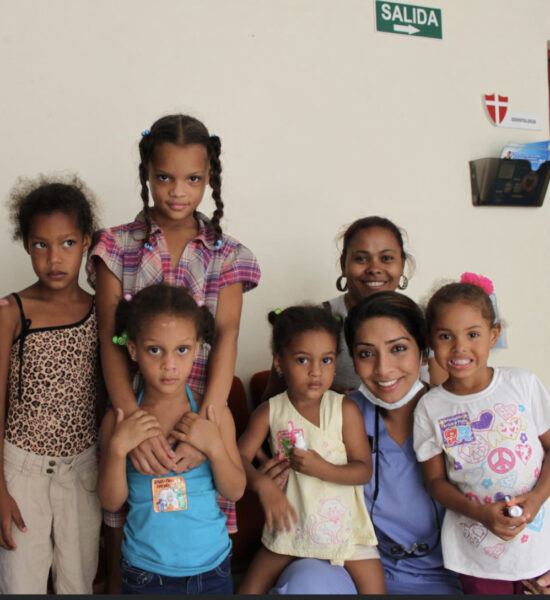
One is the adoption of a proactive approach when it comes to scheduling. Instead of relying on the parents to call us back to make the next appointment, we book the next visit before they leave. The front desk has local school schedules so they can work with parents on making appointments on days or times that school is not in session. Our scheduling guidelines leave the first appointments of the day and the times after school hours open for pediatric patients. This minimizes losing valuable educational hours.
We have also been working to improve our compliance with sealants. Sealants are an important preventative measure to prevent cavities from forming. It’s important to apply those sealants soon after children get their permanent molars to prevent decay. When I started, we were at about 68% and now we are at 82%, but sometimes as high as 85%.
Finally, we have really started working closely with our expectant mothers in our perinatal services program to ensure that they are taking care of their oral health and know how to care of themselves and for their babies’ gums and teeth as they come in. Saliva serves as a vector for introducing caries or periodontal involved bacteria early to infants. Hence, I always recommend caregivers to not share utensils, pre-eaten food or kiss on the mouth.
Have you been able to expand any other dental services offered?
Yes, starting in November of 2022 we began offering root canals and crowns. It is important that our team can provide a wide scope of care. For most patients that come to us we are the only option they have. Being able to offer these additional procedures means we don’t have to turn someone away or refer them to another provider. I have one patient who traveled to see an external provider, waited for two hours only to be told they could not help them. When they came to OLE I was able to say, yes, we can help you, and we were able to address the problem that day.
What is the best advice you have for making sure you care for your oral health?
Brush AND floss your teeth. We hear people say, “brush your teeth and go to bed,” we need to embed floss into that phrase, and into our routine.
